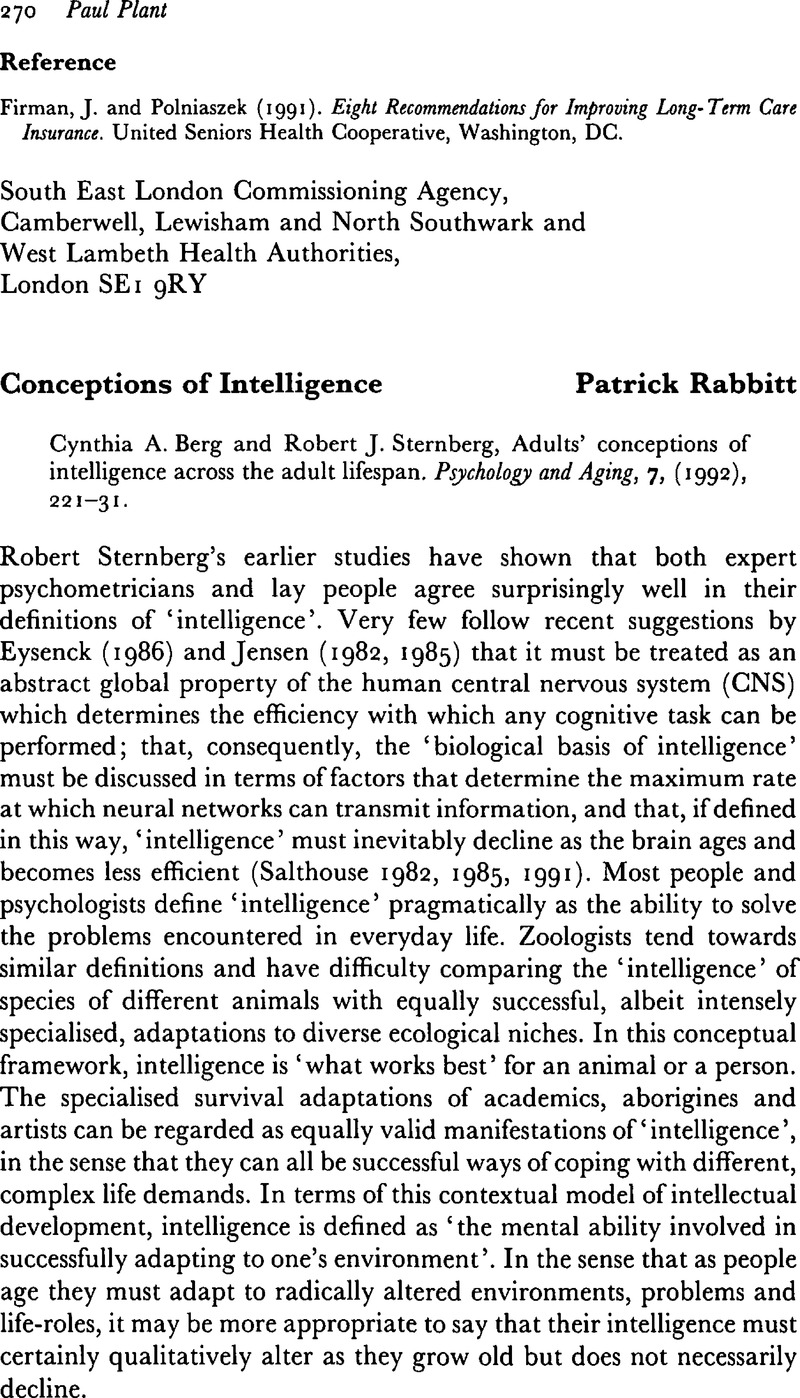No CrossRef data available.
Article contents
Conceptions of Intelligence
Published online by Cambridge University Press: 14 November 2008
Abstract
An abstract is not available for this content so a preview has been provided. As you have access to this content, a full PDF is available via the ‘Save PDF’ action button.

- Type
- Abstracts
- Information
- Copyright
- Copyright © Cambridge University Press 1993
References
Eysenck, H. J. 1986. The theory of intelligence and the psychophysiology of cognition. In Sternberg, R. J. (ed.), Advances in the Psychology of Human Intelligence. Vol. 3, pp 1–34, Erlbaum, Hillsdale, New Jersey.Google Scholar
Horn, J. L. and Cattell, R. B. 1967. Age differences in fluid and crystalised intelligence. Acta Psychologica, 26, 107–129.CrossRefGoogle Scholar
Jensen, A. R. 1982. The chronometry of intelligence. In Sternberg, R. J. (ed.), Advances in the Study of Human Intelligence, Vol. 1, Erlbaum, Hillsdale, New Jersey.Google Scholar
Jensen, A. R. 1985. The nature of the black-white difference on various psychometric tests: Spearman's hypothesis. The Behavioural and Brain Sciences, 8, 193–219.CrossRefGoogle Scholar
Salthouse, T. A. 1982. Adult Cognition: An Experimental Psychology of Human Aging, Springer-Verlag, New York.CrossRefGoogle Scholar
Salthouse, T. A. 1991. Theoretical Perspectives on Cognitive Aging. Erlbaum, Hillsdale, New Jersey.Google Scholar
Spearman, C. 1904. General intelligence objectively determined and measured. American Journal of Psychology, 15, 201–293.CrossRefGoogle Scholar


